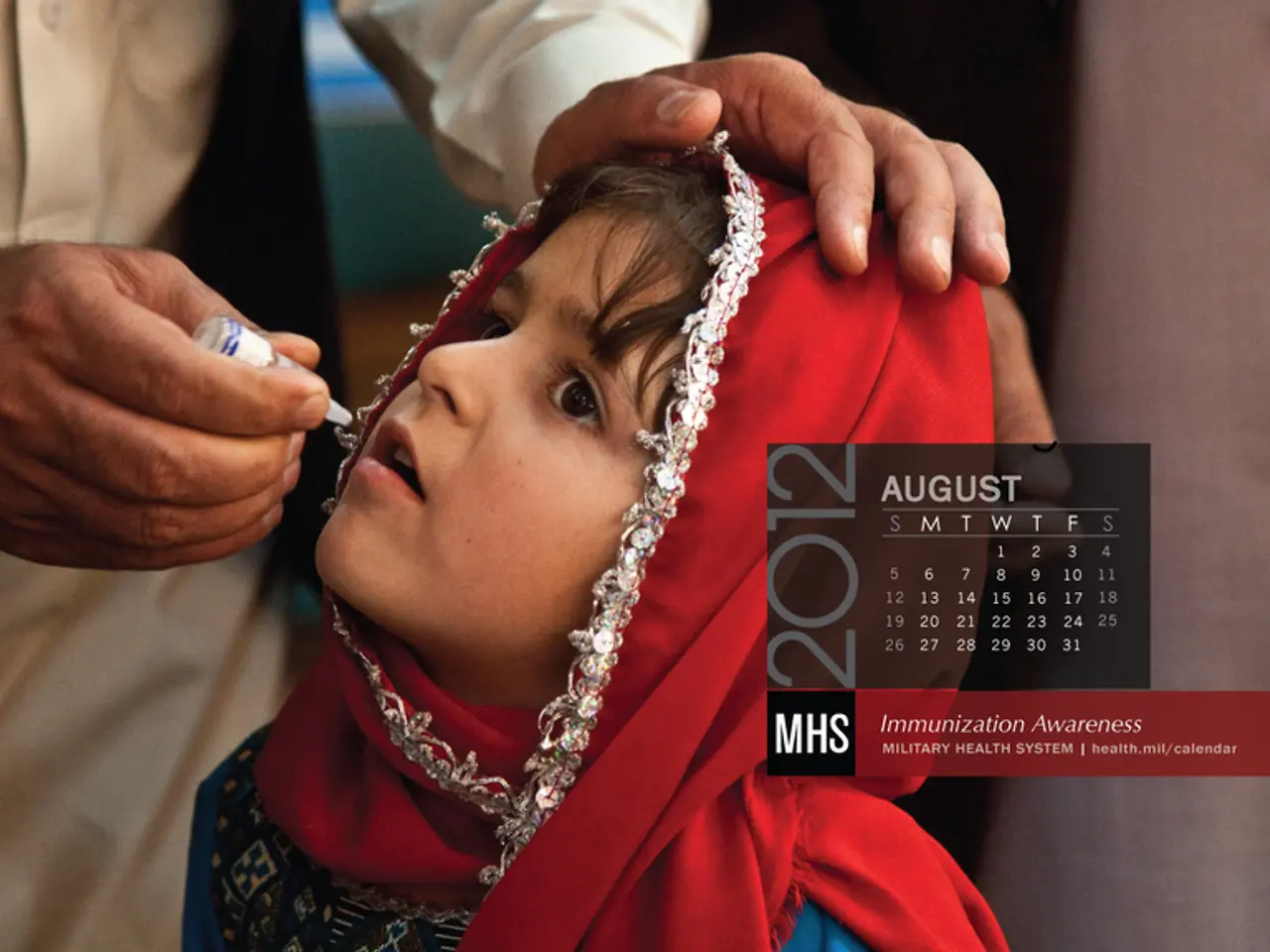Vaccination for Infants: Understanding the Process and Outcomes
### Protecting the Future: Essential Vaccines for Babies
Babies are given a series of vaccinations from birth to age six to safeguard them against a range of serious diseases. Here is an overview of some key vaccines and their purposes:
1. **Hepatitis B Vaccine:** Protects against the hepatitis B virus, which can lead to liver disease and liver cancer. The first dose is given at birth, followed by two or three additional doses at specified intervals [1][2]. 2. **Hepatitis A Vaccine:** Prevents hepatitis A, a liver infection that can spread through contaminated food or water. The vaccine is typically given in two doses, six months apart [2]. 3. **Rotavirus Vaccine:** Protects against rotavirus infections, which can cause severe diarrhea and dehydration in infants. The vaccine is usually given as a series of three or four doses [2]. 4. **Diphtheria, Tetanus, and Pertussis (DTP) Vaccines:** Protect against diphtheria (a bacterial infection), tetanus (lockjaw), and pertussis (whooping cough). The DTP vaccine is typically given as a series of five doses [2]. 5. **Haemophilus influenzae type b (Hib) Vaccine:** Prevents Hib infections, which can cause meningitis and other serious diseases. The Hib vaccine is usually given as a series of three or four doses [2]. 6. **Polio Vaccine:** Protects against poliomyelitis, a disease that can cause paralysis. The IPV (inactivated poliovirus vaccine) is typically given as a series of four doses [2]. 7. **Measles, Mumps, and Rubella (MMR) Vaccine:** Prevents measles, mumps, and rubella. The MMR vaccine is usually given as a single dose, with a second dose given later in childhood [2]. 8. **Chickenpox (Varicella) Vaccine:** Protects against chickenpox, a highly contagious viral infection. The varicella vaccine is usually given as a single dose [2]. 9. **Pneumococcal Conjugate Vaccine:** Prevents pneumococcal disease, which can cause pneumonia and meningitis. The PCV vaccine is typically given as a series of four doses [2]. 10. **Influenza (Flu) Vaccine:** Protects against the flu, which can be severe in young children. The flu vaccine is recommended annually [2].
## Ensuring Timely Vaccinations
To ensure that children receive vaccinations on time, parents can follow these steps:
1. **Consult a Pediatrician:** Stay in touch with your pediatrician to get advice on the recommended vaccination schedule and any updates [5]. 2. **Follow the Recommended Schedule:** Adhere to the recommended vaccination schedule to ensure your child gets optimal protection against diseases [5]. 3. **Stay Informed:** Keep up-to-date with the latest information on vaccines and their schedules. The American Academy of Pediatrics and the CDC provide reliable resources [2][5]. 4. **Use Vaccination Reminders:** Use reminders or apps to keep track of upcoming vaccinations [5]. 5. **Address Missed Vaccines:** If a vaccine is missed, consult your pediatrician for guidance on catch-up vaccinations. There is no need to start over [5].
By following these steps, parents can help ensure their children receive the necessary vaccinations to protect them from serious diseases. Vaccinating babies not only protects them but also contributes to community protection through herd immunity. Comforting the baby during vaccination can help make the process less stressful, and post-vaccination care includes following aftercare instructions from the healthcare provider, managing any discomfort, and ensuring the baby stays hydrated.
Vaccines have significantly reduced or eradicated many life-threatening diseases worldwide, making them essential to prevent the occurrence of life-threatening diseases and safeguard a baby's health. By completing the recommended vaccination schedule, parents can contribute to the larger goal of reducing the overall prevalence of diseases in the community, protecting infants who are too young to receive certain vaccines, and those with compromised immune systems.
- Parenting involves ensuring the health-and-wellness of children, including following recommended schedules for baby vaccines to safeguard them against serious diseases.
- The hepatitis B vaccine, given at birth, is crucial for protecting babies against the hepatitis B virus, which can lead to liver disease and liver cancer.
- The proper mental-health of a family hinges on making informed decisions about children's health, such as adhering to the recommended vaccination schedule.
- Families can consult their pediatrician for advice on the vaccination schedule and any updates to ensure their kids are protected against diseases.
- Scientific advancements in health-and-wellness have enabled the development of vaccines, like the rotavirus vaccine, to prevent severe diarrhea and dehydration in infants.
- Parents play a vital role in maintaining community family-health by following recommended vaccination schedules for their children, contributing to herd immunity.
- Post-vaccination care involves managing any discomfort, hydrating the baby, and following the aftercare instructions provided by healthcare professionals.




